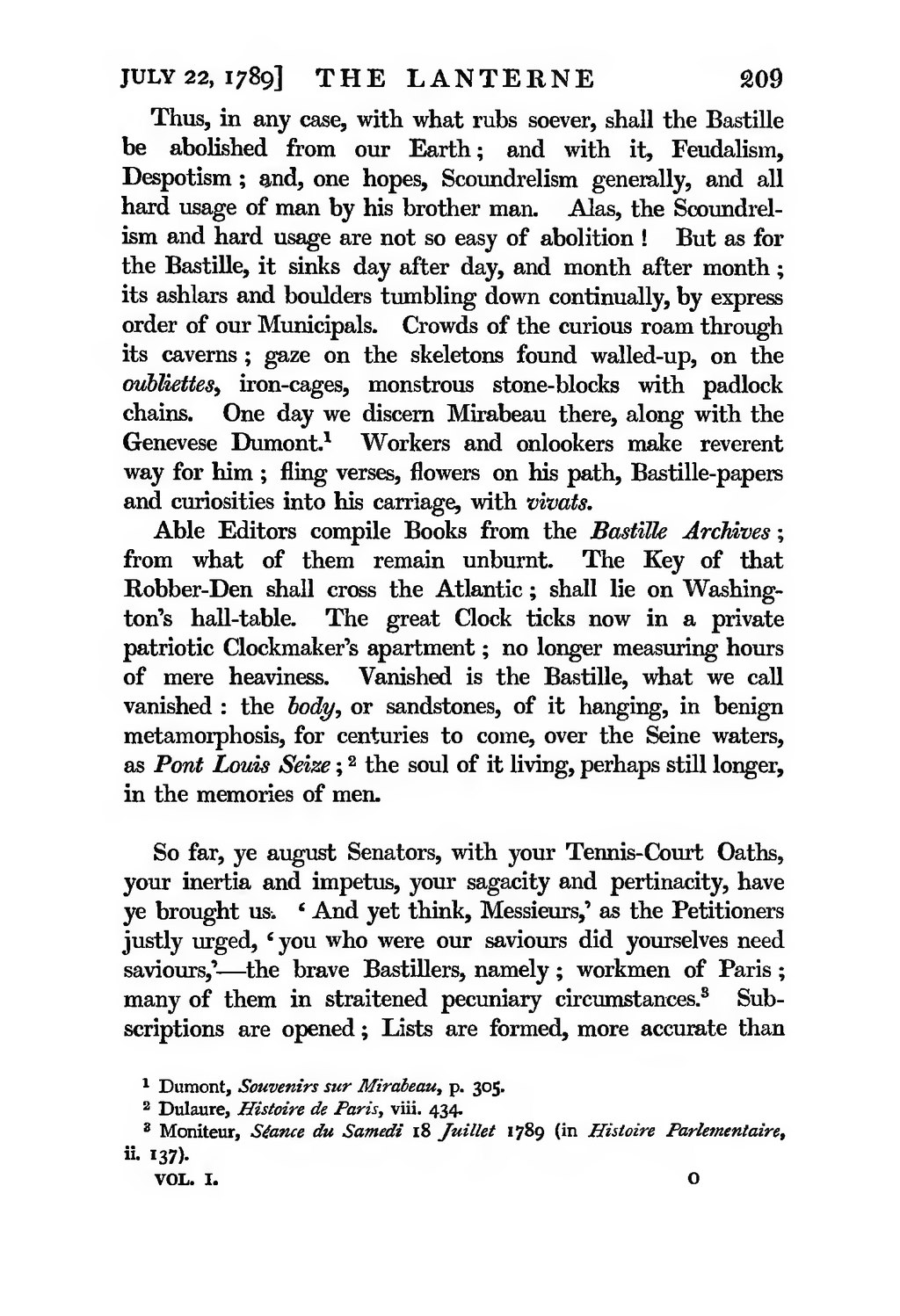Thus, in any case, with what rubs soever, shall the Bastille be abolished from our Earth; and with it, Feudalism, Despotism; and, one hopes, Scoundrelism generally, and all hard usage of man by his brother man. Alas, the Scoundrelism and hard usage are not so easy of abolition! But as for the Bastille, it sinks day after day, and month after month; its ashlars and boulders tumbling down continually, by express order of our Municipals. Crowds of the curious roam through its caverns; gaze on the skeletons found walled-up, on the oubliettes, iron-cages, monstrous stone-blocks with padlock chains. One day we discern Mirabeau there, along with the Genevese Dumont.[1] Workers and onlookers make reverent way for him; fling verses, flowers on his path, Bastille-papers and curiosities into his carriage, with vivats.
Able Editors compile Books from the Bastille Archives; from what of them remain unburnt. The Key of that Robber-Den shall cross the Atlantic; shall lie on Washington's hall-table. The great Clock ticks now in a private patriotic Clockmaker's apartment; no longer measuring hours of mere heaviness. Vanished is the Bastille, what we call vanished: the body, or sandstones, of it hanging, in benign metamorphosis, for centuries to come, over the Seine waters, as Pont Louis Seize;[2] the soul of it living, perhaps still longer, in the memories of men.
So far, ye august Senators, with your Tennis-Court Oaths, your inertia, and impetus, your sagacity and pertinacity, have ye brought us. 'And yet think. Messieurs,' as the Petitioners justly urged, 'you who were our savioiurs did yourselves need saviours,'—the brave Bastillers, namely; workmen of Paris; many of them in straitened pecuniary circumstances.[3] Subscriptions are opened; Lists are formed, more accurate than
